Eco-Challenge Fiji 11 - The Suck
Eco-Challenge Fiji:
World’s Toughest Race
Sunday, September 15th - Tuesday, September 17th
Spoilers: None
Wading through the jungle in freezing cold river was a test for many teams.
Team US Military spent a little time at the top of Vuwa Falls before embarking at midnight on the Highlands stage, which would prove to be the worst leg of the entire race. Joshua took over the navigation, and from the map the opening portion of the stage seemed easy enough—just follow the river to a series of ropes courses along the way. The team started on some very tedious rock hopping along the river. There was some initial flagging to point teams in the right direction, but that petered out rather quickly after which teams were on their own.
After about an hour of following the river, the team began to question whether or not they were going in the right direction. It was about 1am and Joshua was fading fast. They had not been keeping track of distance and did not know how much further they had to go. Joshua also appeared to be nodding off as he was navigating. After about twenty minutes of deliberation and scouting, the team decided to go back to the CP to reset and allow Spangler to take over navigation from a known point. Team US Military would have to make their way back and start again.
With an alert Spangler on the navigation, it turned out that Team US Military had been almost there. A common error in adventure racing--Team US Military had simply not gone far enough. That was the first of two navigation errors the team would make on the course. While this one cost them two hours, the next would cost much more.
The military team continued up the river as daylight began painting the sky. The section was grueling. The embattled racers were constantly slipping and banging their shins on the rocks that littered the river and the narrow banks along its side. The rocks ranged in size from the size of a baby’s head to the size of a car. When traveling along the river, they were unavoidable. All were wet and slippery, and falling in that environment could have heavy consequences.
To make matters worse, an underestimation of the number of spare batteries to bring for the stage left two of the team members without light. Leaping across wet rocks--sometimes as much as six feet above the ground--by moonlight in the middle of the Fijian jungle would be one of numerous truly unique Eco-Challenge Fiji experiences thrust upon the members of Team US Military.
To make matters EVEN worse, the shoes the team were wearing proved to be ill-suited for the terrain. Caitlin’s shoes had limited traction and her feet hurt from all the rocks that kept making their way inside them. For this stage of the race, Joshua unluckily chose a pair of trail shoes that would reveal themselves to be Chinese knock-offs, all but falling apart during the stage. The team was poorly outfitted for what would be heralded as one of the most miserable stretches of the race.
A team paddles their standup paddleboards through the lake at low levels
To make matters worse, an underestimation of the number of spare batteries to bring for the stage left two of the team members without light. Leaping across wet rocks--sometimes as much as six feet above the ground--by moonlight in the middle of the Fijian jungle would be one of numerous truly unique Eco-Challenge Fiji experiences thrust upon the members of Team US Military.
With footwear that fell short of the task of navigating the slimy river rocks, the endurance athletes were constantly falling in the rugged terrain. Each of the members of Team US Military were thankful for their backpacks, which took the brunt of the impact from many falls. The team wisely had chosen to wear climbing helmets as they forged ahead up the river. At one point Caitlin slipped and hit her head pretty substantially on a rock. At that moment, she was relieved she had her helmet on. A dent in the back of Joshua’s helmet would have surely been in his skull had it not been protected so. The most serious event (thanks to the helmets) would be a fall by Jesse, which put a gash in his leg that would later require numerous stitches to close. It would subject him to the ever-present risk of infection for the duration of the race.
At some point during the moonlit night, Joshua had had enough and altered his approach to moving up the river. In a strange form of crawling more akin to yoga than hiking, he used all four of his limbs to move like a spider over the rocks. Once his weight was distributed, he began moving differently. Think of the river as a horizontal climbing wall, he began shifting his hips and swinging his legs around in various directions, and started using stemming techniques canyoneers often employ to keep from falling to the bottom of narrow slot canyons. It worked. Pinching his feet between rounded river stones hurt far less, he all but stopped falling, and in the rare instances he did, it was from half height. His progress developed into a rhythm, his movements a Capoeira-like dance in the moonlight.
His progress developed into a rhythm, his movements a Capoeira-like dance in the moonlight.
During the dangerous river trek, Team US Military caught up to Team Ireland AR who was camped on a rock in the middle of the river. Teams were not supposed to camp on this section as it was very cold, but Mark Lattanzi had gone delirious during the night and had radioed in that their team, who had been under siege by hypothermia and infection, had to stop. Their camp was made from a tarp and long bamboo poles and was fairly impressive considering it was in the middle of the river. According to Mark, Team Scouts Australia had recently come through and assisted them in its construction. After a brief conversation to confirm the Irish were not in need of immediate help, Team US Military continued on.
The military team finally got to the ropes section, at which point Jesse showed Spangler his leg. He had a huge gash in his shin that Spangler confirmed would need stitches. They taped it with a bandage and made a plan to see the Eco-Challenge Fiji medical team at the next CP.
Paddleboarder working his way through the lowered lake during the day.
To the members of Team US Military, the ropes courses were really fun and an exciting highlight of the course. After the ropes courses, teams had one last mile of jungle/river swimming.
This section was awful. Teams had to swim in cold water, traverse rocks, swim again, traverse thick mud and jungle. Over and over again. This one mile section was the worst of the entire course. Caitlin was lagging way behind and whining most of the way. It seemed to take forever; the team members’ feet were hurting and the only person who seemed to be tolerating the cold was Joshua.
After the river swimming section, the Eco-Challenge race management team had a warming tent with food and hot soup. Caitlin was never so grateful. Everything in their bags was soaked, but teams had dropped off a waterproof duffle with dry clothes to change into. After the change of clothes and warm food, Team US Military felt much better.
Teams were shuttled to the next leg of the race. Each team was granted ninety minutes for the shuttle. The members of Team US Military immediately passed out on the very bumpy ride. Ninety minutes seemed like thirty seconds as they awoke, arriving all too quickly. Needing more rest, the team decided to sleep for another hour before setting out on the SUP leg.
Jesse got his shin stitched up at this CP. The team embarked on the water right as night was falling. With a stiff tailwind, it was unsteady standing up on the paddleboards, so it was quickly decided that they would all sit down and paddle. Still somewhat cold, they did not want to risk falling in.
Team US Military became the confident flagship that several others teams began to follow through what Jesse considered to be the most difficult stretch of the race navigationally.
The SUP went very well for Team US Military—with a tailwind the entire way, they covered ground quickly, taking extreme caution to avoid becoming entangled in the branches of dead trees exposed by the lake’s low water levels. Their speed, accelerated by the tailwind, combined with the mist in the nighttime air made for poor visibility and insufficient reaction time. They did their best to fight the wind to stay together as a team. Joshua, who had earlier in the year prepared for Eco-Challenge Fiji by setting paddling records circumnavigating some of the largest lakes in his home state of Georgia, was on the map and compass for the military team. Joshua’s lake navigation was on point, and the team overtook several others attempting to escape the labyrinth of underwater rivers now exposed by the drying of the lakebed. Team US Military became the confident flagship that several others teams began to follow through what Jesse considered to be the most difficult stretch of the race navigationally.
Team 16 (yes, that one) portaging their paddleboards in the middle of the night.
On the far side of the lake, the team made it to where the lake narrowed and a film crew was set up. Team US Military thought this might be the takeout, and they alongside several other teams started taking the boards out of the water. As it turned out, they were not there yet and put the boards back into the water.
At this point the water level started to get rather low. Spangler was cold so Team US Military decided to get out and portage the paddleboards the rest of the way. Several teams followed suit. After plodding through calf deep mud for about twenty minutes with no take out in sight, they decided to go back in the water to see if better progress could be made.
The water level was still low, and it was a pain to paddle against the current. Team US Military removed the skegs on the boards as they were dragging against the river bottom, but they were impossible to steer without the skegs. Approaching yet another potential takeout, the military team saw many teams in the area. The amount of teams wandering around trying to find the takeout was unnerving. Speaking briefly from the water, the members of Team US Military learned one team had been there for hours trying to find it.
Still on the map like a bloodhound, Joshua was sure that it was still further down so we started to drag the boards once again, pushing much further ahead than the other teams were willing to scout in an attempt to drop them in the darkness. After a while a farmer popped seemingly out of nowhere and confirmed the takeout was further down. With their confidence steeled, they continued portaging for what seemed like a very long time until they finally arrived at the CP. The expedition guidebook had hinted that the water level was much lower than what the map indicated, which is why teams ended up portaging the SUPs for so long.
Checking in as the 22nd team, Team US Military noticed one team that had been expected to arrive that afternoon , but were still looking for the CP (it was midnight). The volunteer informed racers that some teams were sleeping in an abandoned house across the road. It was late and the members of Team US Military were wet and tired, so they decided to bag another sleep for three hours. But the sleep would prove futile; after about two and a half hours of shivering in wet clothes, they decided they needed to go ahead with the trek section.
Caitlin Thorn is a guest blogger here. Caitlin Thorn is an accomplished endurance athlete, with numerous accolades as a distance runner, Olympic and half-Ironman distance triathlete, and adventure racer. Caitlin is a Track and Field Division I NCAA All-American, with numerous finishes in the half-marathon and marathon distances. She has been adventure racing for three years and has earned podium finishes at over 6 races and qualified for the 2019 USARA National Championship. Caitlin enjoys world travel and hiking, and when not pursuing outdoor adventure she serves as an active duty officer and engineer in the U.S. Air Force.
Caitlin can be followed via Facebook @caitlin.aub








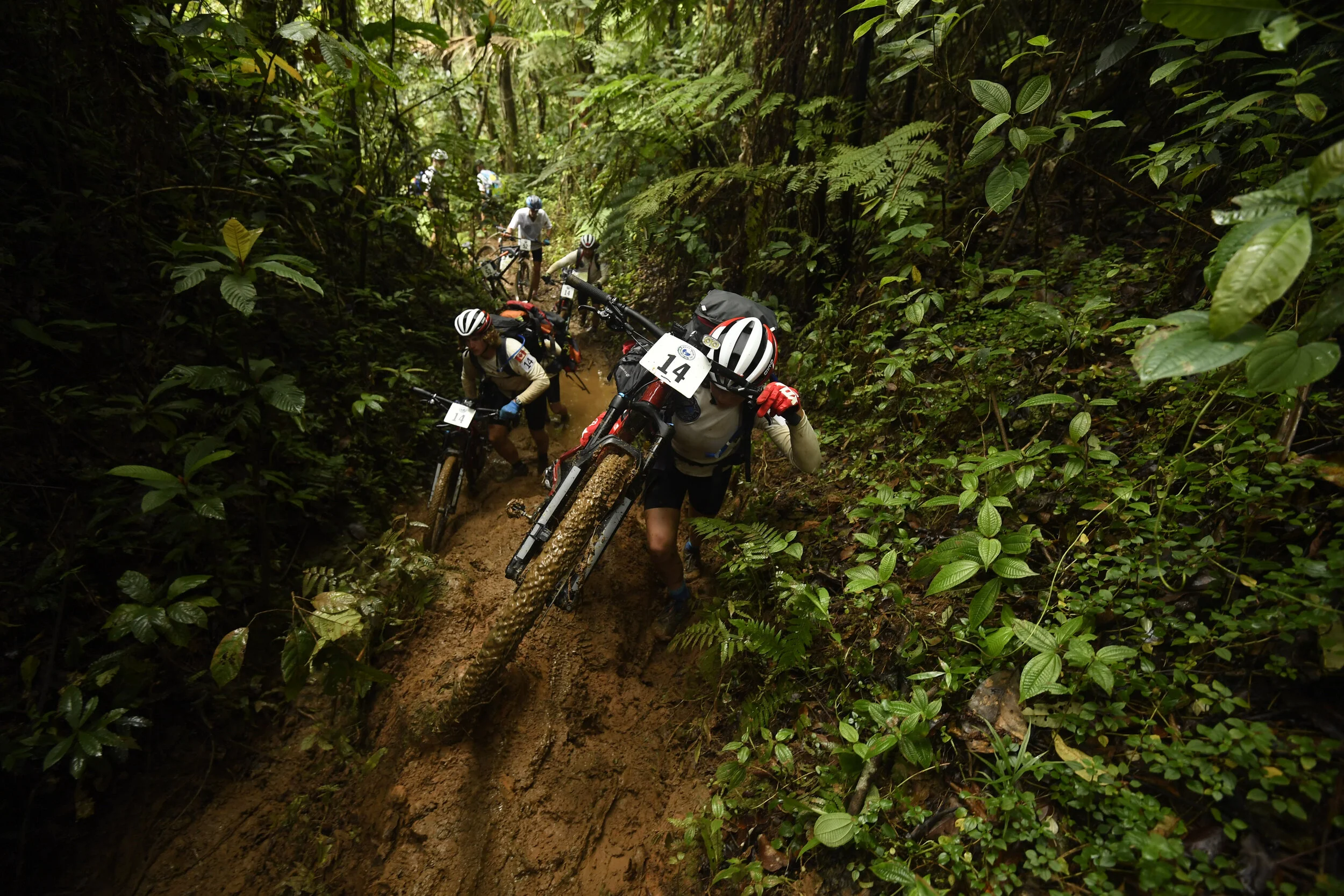



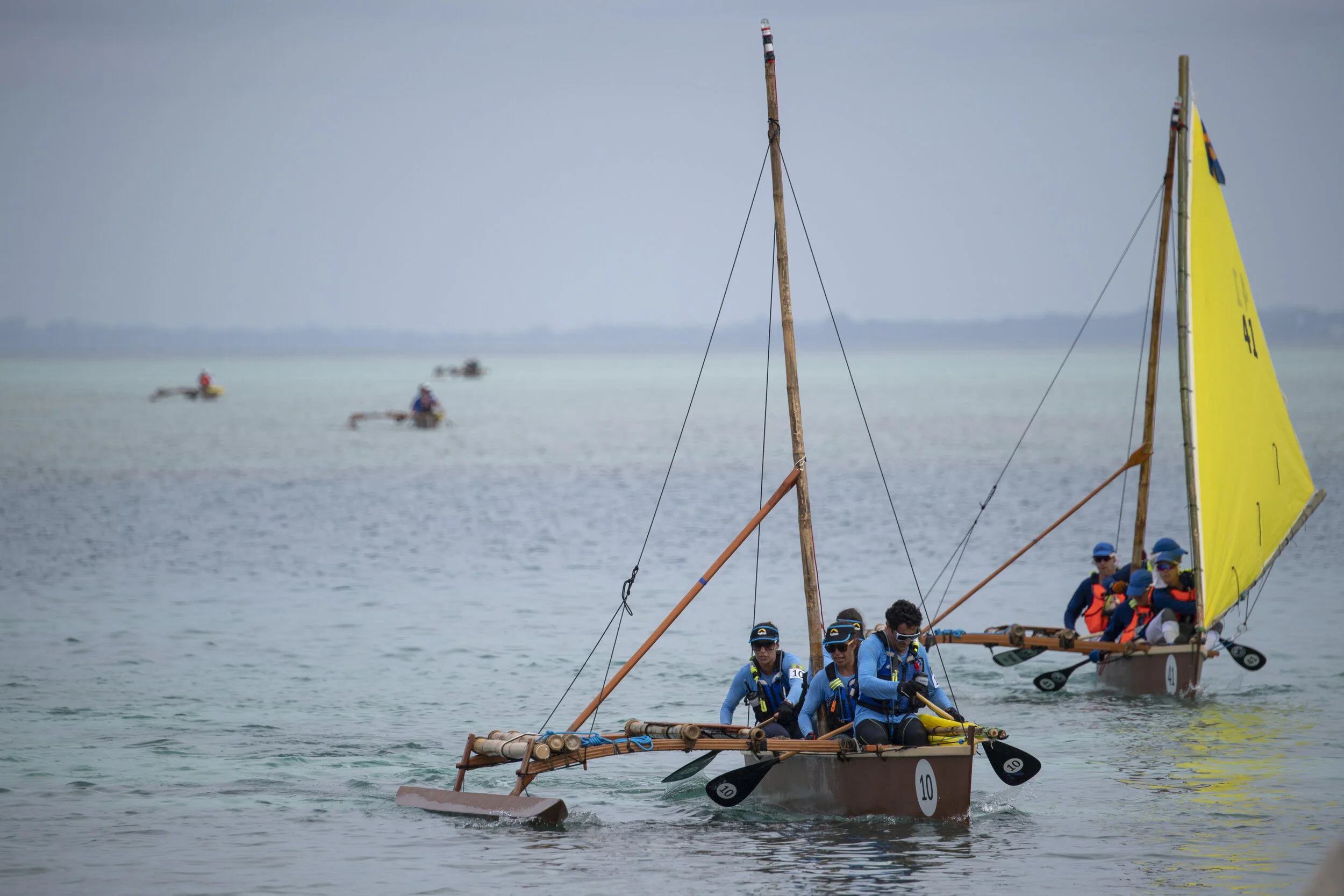
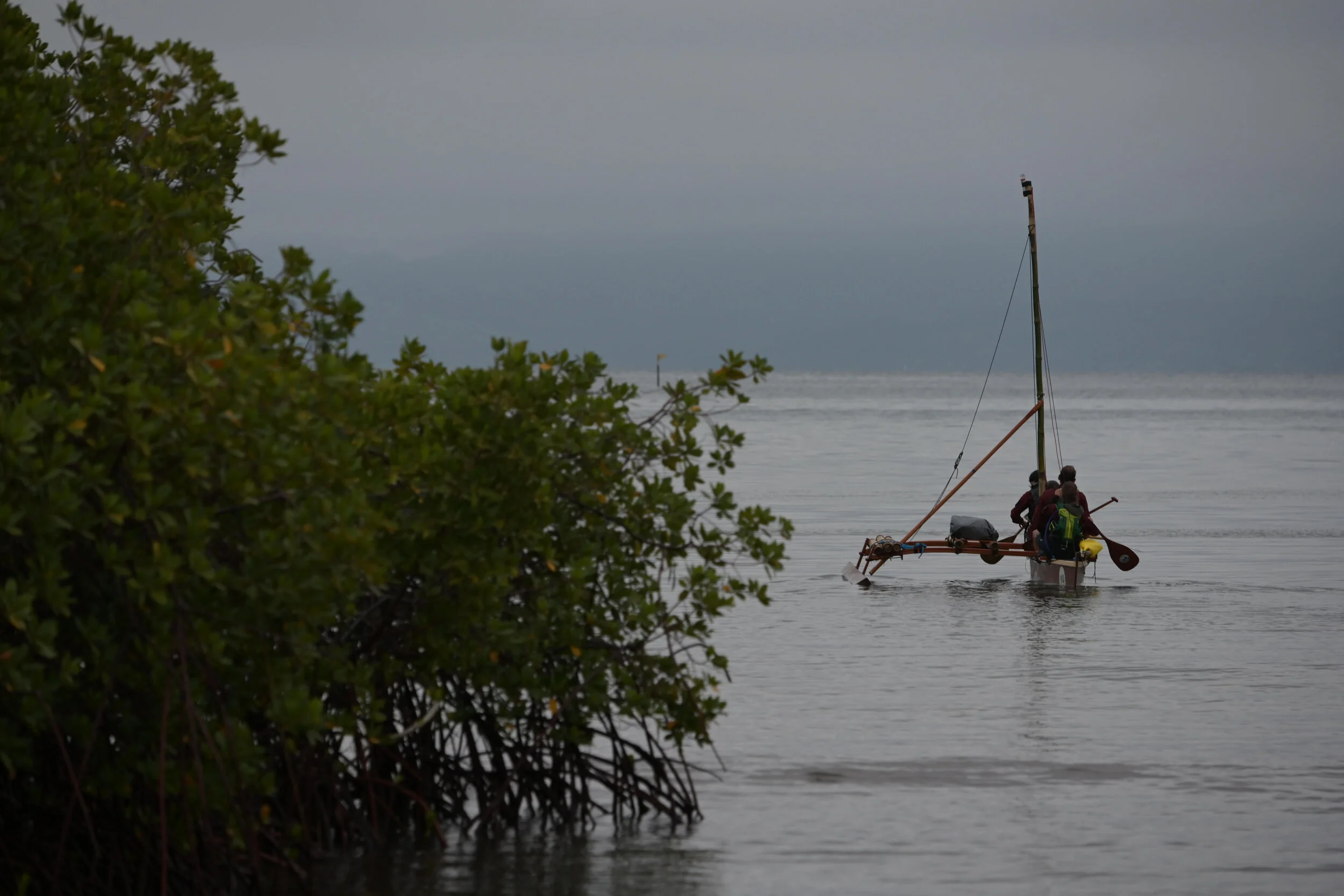
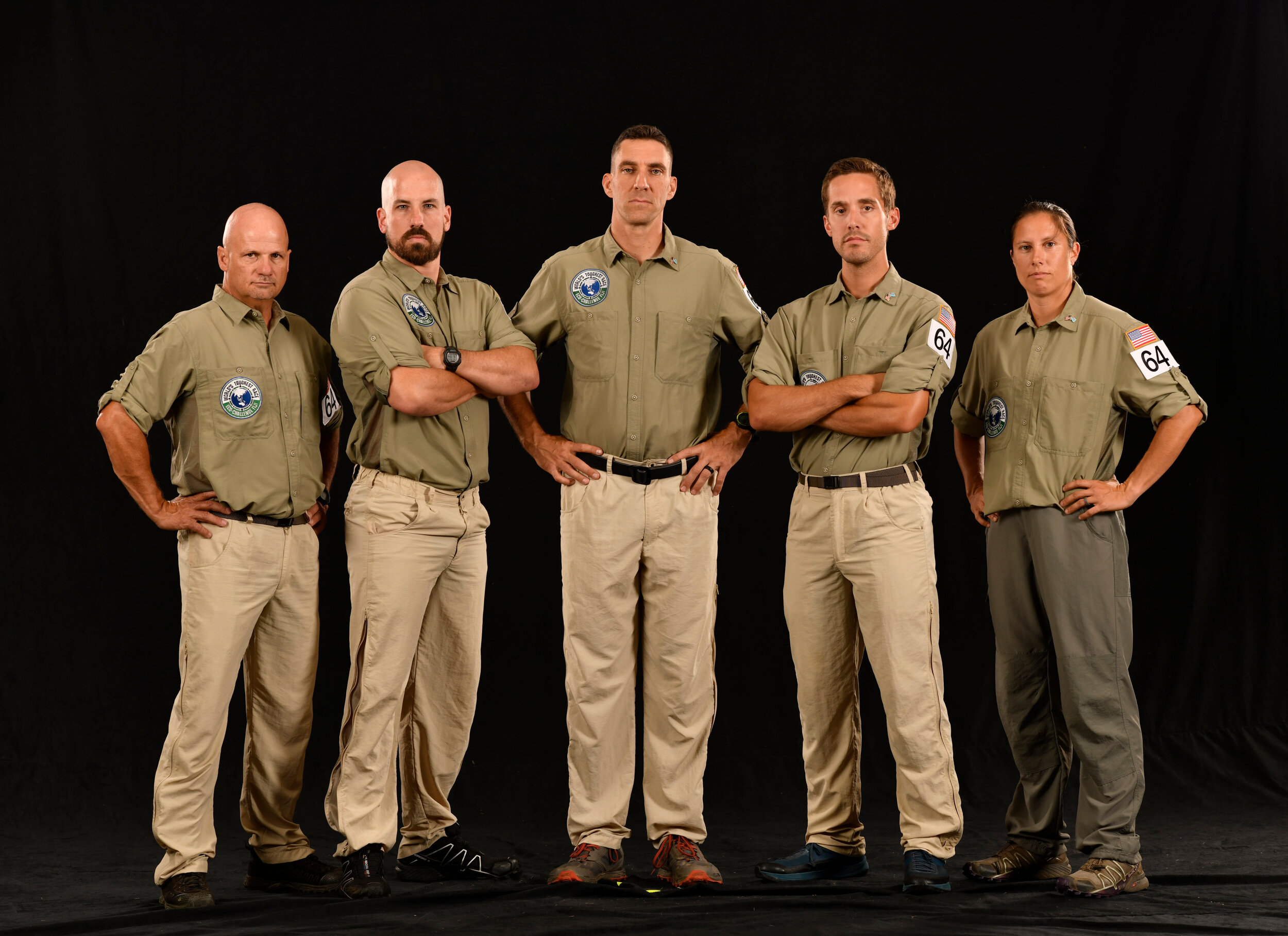

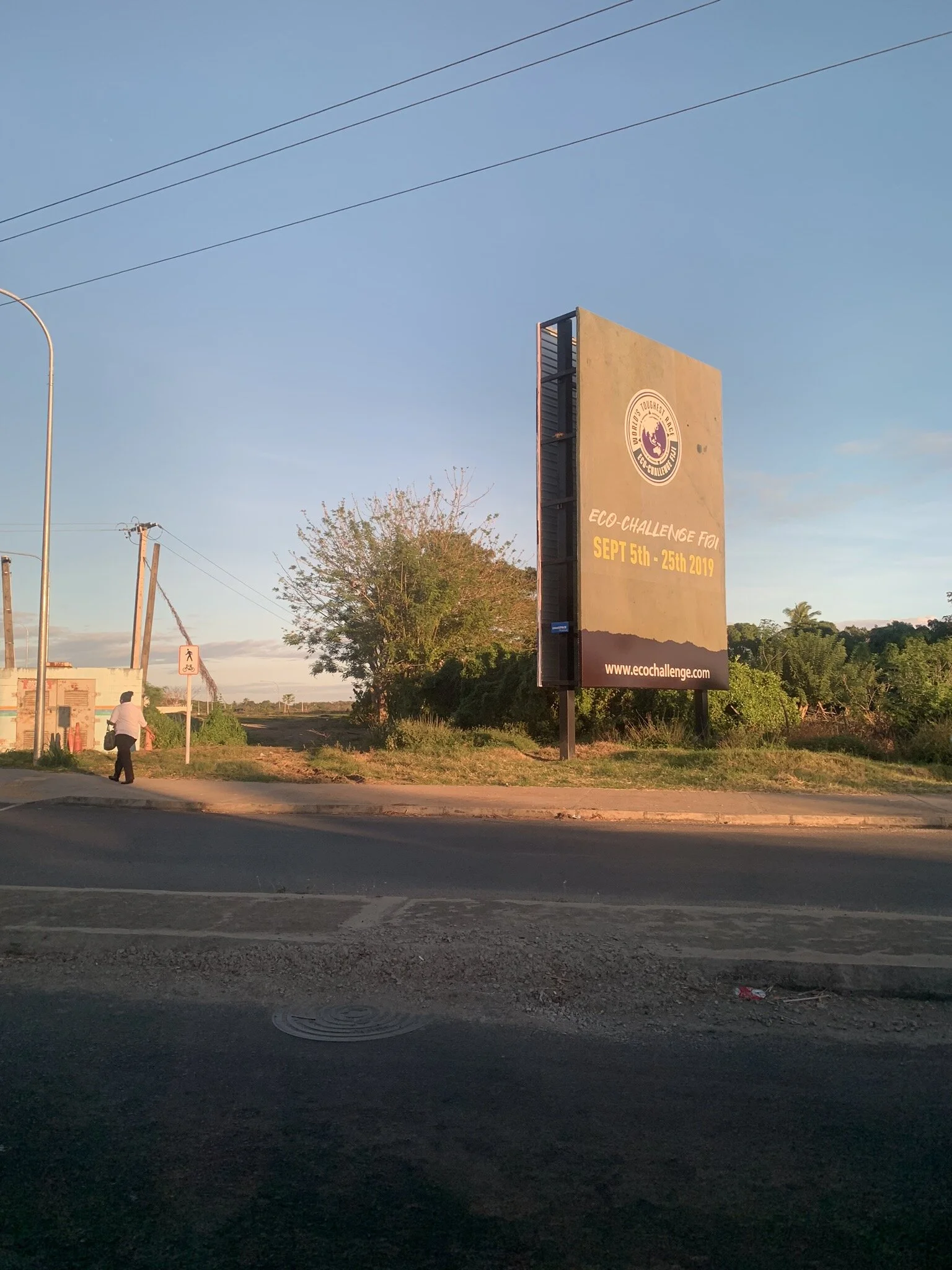
Eco-Challenge Fiji never promised to be an adventure race. Its claim was “The World’s Toughest Race”. Despite the lack of navigational challenges and jungle whacking (which was anticipated to be the hardest part of the race), Eco-Challenge Fiji was still the hardest race the members of Team US Military had ever done. The biking was tough, with incredible elevation gains and losses, and the weather added to the suck factor. This course tested the limits of racers’ mental capacity and their will to finish. Traveling across and along rocky rivers was tedious and broke some of the hardest people down. Continually slipping on rocks and banging up shins and feet tested the bounds of human fortitude and willpower.